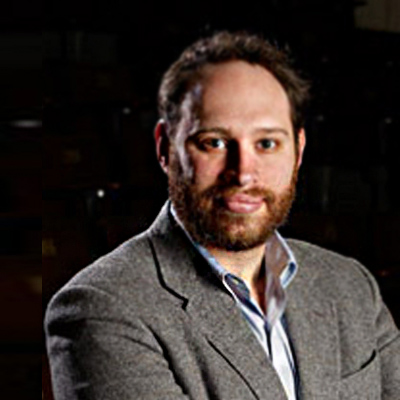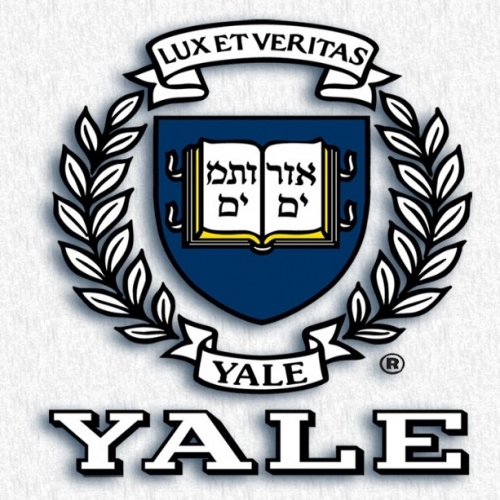Treating Incurable Diseases Using New, Chemical Approaches
Dr. David Spiegel oversees one of the few labs in the world that integrates fundamental organic chemistry with cellular and molecular immunology. His lab performs essential functions that bridge academia and industry by envisioning entirely new ways that drugs can function, and by treating patients suffering from a wide range of diseases. His goal is to create molecules that use the body’s immune system, instead of toxins, to treat diseases such as cancer and HIV. Unlike available treatments, these molecules can function virtually without side-effects, and also induce long-lasting immunity to a particular disease, even after the drug is removed. Dr. Spiegel’s synthetic small-molecules alter the function of natural human antibodies, mimic the function of antibodies, modulate the innate immune system, and reduce inflammation. In short, he comes up with ideas that pharmaceutical companies would never dare to try. Over a very short time-frame, Dr. Spiegel has proved the success of his small-molecules and has moved them to advanced-stage pre-clinical trials. He has all of the tools and expertise needed to develop ideas through the entire pipeline, from chemical structures on a chalkboard to a therapeutic lead with a novel mechanism of action. Dr. Spiegel’s work is treating the immune system with small-molecules in completely new ways, killing cancer and other diseases with far fewer side effects than traditional methods.
The focus of research activities in the Spiegel Laboratory is on the development of novel, chemistry-driven strategies for controlling and/or creating human immunity. The lab is led by Dr. David Spiegel, Professor in the Department of Chemistry and Pharmacology at Yale University, who is concerned with synthesizing new kinds of molecules to function in new ways. These synthetic molecules interact with the immune system to alter its function and unleash its full power against diseases like cancer, HIV, bacterial and fungal infection, and others. Unlike existing immunotherapeutics, these molecules can be delivered in pill form, do not cause unwanted allergic reactions, are completely stable to long-term storage, and perform numerous complicated immunological functions. For example, Dr. Spiegel was the first to develop antibody-recruiting small molecules (ARMs). ARMs are therapeutics that can be used to redirect antibodies already present in the human bloodstream toward immune-mediated removal of disease-related cells and viruses. Dr. Spiegel has also recently published the first example of a fully synthetic molecule that possesses both the targeting and effector functions of antibodies. These molecules control the immune system, and unleash its power in killing prostate cancer cells. They also elicit long-lasting immunity. The focus of his research is to develop new paradigms on how drugs can work in conjunction with existing systems in the body.
Dr. Spiegel’s current research can be organized into two ideas, with the first being split into two parts:
-
Small Molecule Immunotherapeutics: Antibody drugs are incredibly popular in modern medicine, being used extensively and offering treatment benefits for patients. Dr. Spiegel believes that small molecules may be able to perform the same functions as antibodies in the body, leveraging all of the benefits of how antibodies work while also maintaining the benefits presented by small molecules such as being orally administered, thermally stable (unlike proteins which denature in response to heat), and non-immunogenic, meaning they will not initiate an immune response. These ARMs are bifunctional with two distinct heads, one head which interacts with antibodies that are already present in the body, and the other which can be designed to interact with cell surface proteins found on the outer membranes of fungi, bacterial, and cancer cells, as well as viruses. The combination of abilities allows the molecules to “hijack” antibodies upon being introduced to the bloodstream and act like a taxi, bringing the antibodies to the surface of a pathogen and decorating the previously unrecognized by the immune system. Dr. Spiegel’s chemicals are reintroducing the immune system to cells that have learned to evade the immune response.
-
In a project similar in its aspects of bifunctionality and recruitment of the immune system, Dr. Spiegel is synthesizing small molecules that, instead of recruiting antibodies, actually perform many of the same functions. These molecules, titled "synthetic antibody mimics" (SYAMs) are also two-headed, with one head recognizing the surface proteins that are overexpressed in cancerous cells, viruses, and bacteria, and the other end interacting directly with cytotoxic, phagocytic immune cells. The artificial antibodies cluster around the F protein receptor sites to release a cytotoxic payload which destroys pathogenic cells. The SYAMs therefore bypass the middle man by acting like antibodies, rather than recruiting them.
- Research has revealed that there are naturally occurring molecules in all living organisms, including humans, that form as a result of carbohydrates reacting and interacting with proteins. Given that proteins are responsible for performing the majority of cellular functions, and carbohydrates, including glucose, are the primary molecules responsible for the transfer of energy, protein-carbohydrate interactions are fundamental to life itself. Interestingly, carbohydrates can take on reactive forms following reaction with proteins that cause them to modify the proteins covalently; this process was until recently believed to be irreversible. The levels of these modifications seem to correlate with a variety of common diseases, notably diabetes. The molecules that form, which are attached covalently to the modified proteins, are called "advanced glycation end products" (AGES) and mimic synthetic small molecules structurally. It was initially believed that these AGES were junk, being formed in the body and signalling only for protein destruction, yet recent discoveries indicate they may also play an important role in human biology. In fact, there are receptor families that can bind to and recognize AGES which are involved with immunity. Because of the nature of their forming, AGES typically create complex combined structures, which makes it difficult to identify which component is responsible for the biology. Dr. Spiegel's goal in this project is to investigate the immune system's response to synthetic small molecules by synthesizing specific AGES, incorporating them into proteins and carbohydrates, and studying their chemistry and biology. With a more developed understanding of AGES, Dr. Spiegel hopes to develop new strategies that could reveal new therapeutics for treating diabetes and cancer by reversing the process of AGES. This could possibly reduce the process of aging, since AGES form on the protein tissues involved in the pathophysiology of aging, including joints and vessels. This would expand the impact of this research to offering treatments for Alzheimers, dementia, and arthritis.
Bio
Dr. Spiegel was drawn to research in large part because of his respect for his mathematician grandfather, who was one of the founding fathers of the Courant Institute at NYU. He was a key authority in the field of mathematics, working alongside Albert Einstein at Princeton University and being friends with Paul Feinstein, a famous mathematician. Dr. Spiegel was the first grandchild, and he shared an important bond with his grandfather. Dr. Spiegel’s uncle was a biochemist, and Dr. Spiegel was raised in a highly scientific and mathematical environment. Some of his earliest memories and inspiration come from his early family relationships.
During one summer in high school, Dr. Spiegel looked for an opportunity to gain experience in the field of politics, a career route he was seriously considering at the time. Thus, he applied for a congressional page position for his district congressman. He was accepted, though his acceptance was later rescinded, and the position offered to the congressman’s nephew in a gross display of nepotism. Understandably, Dr. Spiegel was angered and disillusioned with the political process, which ultimately lit a fire that reignited his interest for science; he pursued his interest of research that summer by becoming involved with an anesthesiology lab run by Drs. Michael Todd and David Warner at the University of Iowa, which allowed high school students to work on real research projects. Specifically, he investigated how chemically different anesthetics led to different degrees of toxicity and after the course of a year he published a paper on it. The huge amount of freedom allowed Dr. Spiegel to combine chemistry (small molecules) and biology, and understand how the two work in combination in the body -- a concept that would ultimately define his career.
His experience at the summer program led Dr. Spiegel to pursue a degree in chemistry at Harvard, earning the highest possible honors in his field. From there he pursued medical school with the intention of becoming a psychiatrist, though he could never shake the idea that chemistry contained the potential to transform the concept of human health. Dr. Spiegel completed his M.D., and in an unusual series of events, he returned to school to earn his Ph.D. in synthetic organic chemistry, a process that he realized through medical school is critical to the drug development process. As he learned more about the subject, it became clearer to Dr. Spiegel that the small molecule approach offers more opportunities in biology by providing new innovative approaches in human medicine. In his lab today, Dr. Spiegel leverages his diverse training, which includes expertise as a physician, pharmacologist, and synthetic organic chemist, to bridge the gap from basic science to actual applicable medicine. He focuses his lab on translational research so that patients may actually see the accomplishments of his research materialize into useful tools. He understands academia's important role in the drug development process, and recognizes his responsibility to take the risks and try the far-out ideas that industry does not have the energy or resources to do.
Outside of the lab, Dr. Spiegel spends time playing the guitar, both acoustic and electric, as well as the bass guitar, while reminiscing about his past days as a musician. During his high school years in New Jersey, Dr. Spiegel played in a metal band, and then an indie rock band. In college he tried his hand at DJing. This all combined into a variety of musical interests today, as music has always been an important aspect of his life. He enjoys making jewelry, which he gives out as gifts to his wife, mother, grandmother, and other important people in his life. Finally, Dr. Spiegel lets off a little steam by riding his motorcycle and enjoying the wonders of the northeast.


